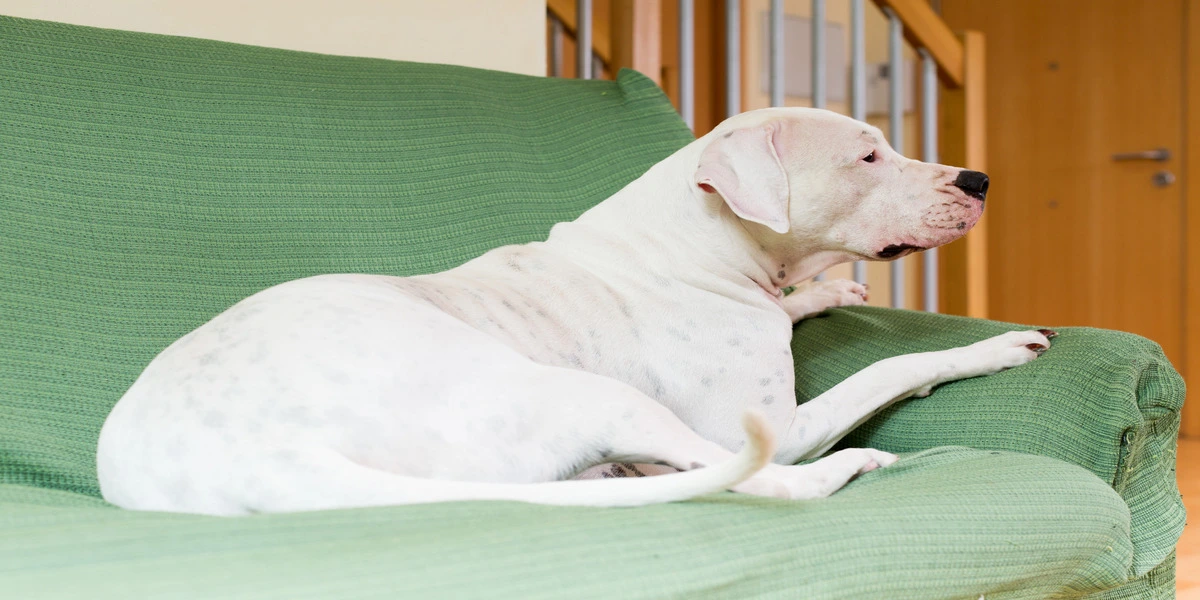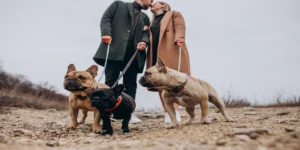Seeing your dog breathing heavily can be concerning, and you’re probably wondering if it’s something serious. While dogs pant to cool off or express excitement, heavy breathing can sometimes point to bigger issues. Knowing the signs and when to step in can make all the difference.
Below, we’ll break down what causes heavy breathing, how to respond, and when to get help.
Why Is My Dog Breathing Heavy?
Dogs use panting to cool themselves, as they can’t sweat like humans. While it’s often nothing to worry about, there are times when it’s a red flag. Let’s dive into some common reasons:
1. Normal Panting
Heavy breathing is usually just panting. Dogs pant when they’re excited, after exercise, or to cool down on a warm day.
- What’s Normal: A steady rhythm that eases up as your dog calms or rests.
2. Overheating or Heat Exhaustion
Warm weather can cause heat stress in dogs. Overheating is dangerous and needs quick action.
- Look for: Red gums, drooling, sluggishness, or even collapse.
3. Stress or Anxiety
Thunderstorms? Trips to the vet? Loud fireworks? Dogs often breathe heavily when stressed or scared.
- Extra Clues: Pacing, whining, trembling, or a tucked tail.
4. After Exercise
Heavy breathing after a run or play session is perfectly normal.
- Watch for: Breathing that doesn’t settle after about 15 minutes of rest could mean something’s up.
5. Respiratory Issues
Kennel cough, pneumonia, or other infections can make breathing difficult. Dogs might also have nasal discharge or a fever.
- Signs to Notice: Coughing, lack of appetite, or low energy levels.
6. Heart Problems
In older dogs, heavy breathing can be a sign of heart issues. Watch closely for symptoms.
- Red Flags: Nighttime coughing, swelling in the belly, or unusual tiredness.
7. Pain or Discomfort
Injuries, arthritis, or illness can cause a dog to breathe heavier than normal.
- Spot It: Limping, whining, or avoiding movement can clue you in.
8. Brachycephalic Breeds
Bulldogs, Pugs, and other flat-faced breeds breathe harder than most. While it’s often expected, it can mean trouble.
- Be Alert: Labored or noisy breathing shouldn’t be ignored.
9. Emergency Conditions
Heavy breathing might signal something critical:
- Allergic reactions (swelling, hives)
- Tracheal collapse (honking cough in smaller dogs)
- Poison exposure (vomiting, tremors)
What to Do If Your Dog Is Breathing Heavy
If your dog’s breathing doesn’t seem normal, here’s what to do:
1. Assess the Situation
- Is the heavy breathing sudden or gradual?
- What’s the environment like—hot, noisy, or stressful?
- Are there other symptoms (coughing, lethargy, vomiting)?
2. Cool and Calm Your Dog
- Move to a shaded or air-conditioned spot if it’s hot.
- Offer fresh water.
- Reduce stimulation—turn off loud sounds, dim the lights.
3. Limit Activity
- Let your dog rest. Skip walks or playtime until breathing normalizes.
4. Check for Signs of Distress
- Look at their gums (pale or blue is bad).
- Watch for excessive drooling or rapid changes in behavior.
5. Call Your Vet
- If the heavy breathing persists or your dog looks distressed, contact your vet immediately. Describe any symptoms in detail.
When to Head to the Vet or Emergency Clinic
Seek immediate help if you notice:
- Difficulty breathing (gasps, wheezing)
- Blue or pale gums
- Loss of consciousness
- Signs of poisoning (seizures, vomiting)
In emergencies, quick action can save your dog’s life. Don’t hesitate to act.
Preventing Heavy Breathing Issues
- Beat the Heat: Provide shade and fresh water in warm weather. Avoid outdoor activities in peak heat.
- Routine Vet Visits: Checkups catch problems early.
- Lower Stress: Keep your dog calm during fireworks or stressful times.
- Moderate Exercise: Adjust activities for your dog’s age, breed, and fitness.
- Safety First: Keep harmful items like cleaning supplies out of reach.
FAQs About Dogs Breathing Heavy
When is heavy breathing normal?
A: After play, excitement, or in warm weather, heavy breathing is fine. It should settle with rest.
Can allergies make my dog breathe heavily?
Yes, allergies can lead to breathing issues. If combined with swelling, call your vet.
What’s the difference between panting and labored breathing?
Panting is rapid and shallow; labored breathing looks strained, with more effort.
Are some breeds more prone to heavy breathing?
Brachycephalic breeds (like Pugs) often breathe harder because of their anatomy. Monitor for severe cases.
What if my dog breathes heavily while sleeping?
Occasional heavy breathing is normal. Consistent or loud breathing may need vet evaluation.
Conclusion
Heavy breathing can be normal or a sign of a bigger problem. By staying observant, you’ll know when to act. If something feels off, trust your instincts—call your vet. With your care and attention, you’ll keep your dog happy, healthy, and breathing easy.



